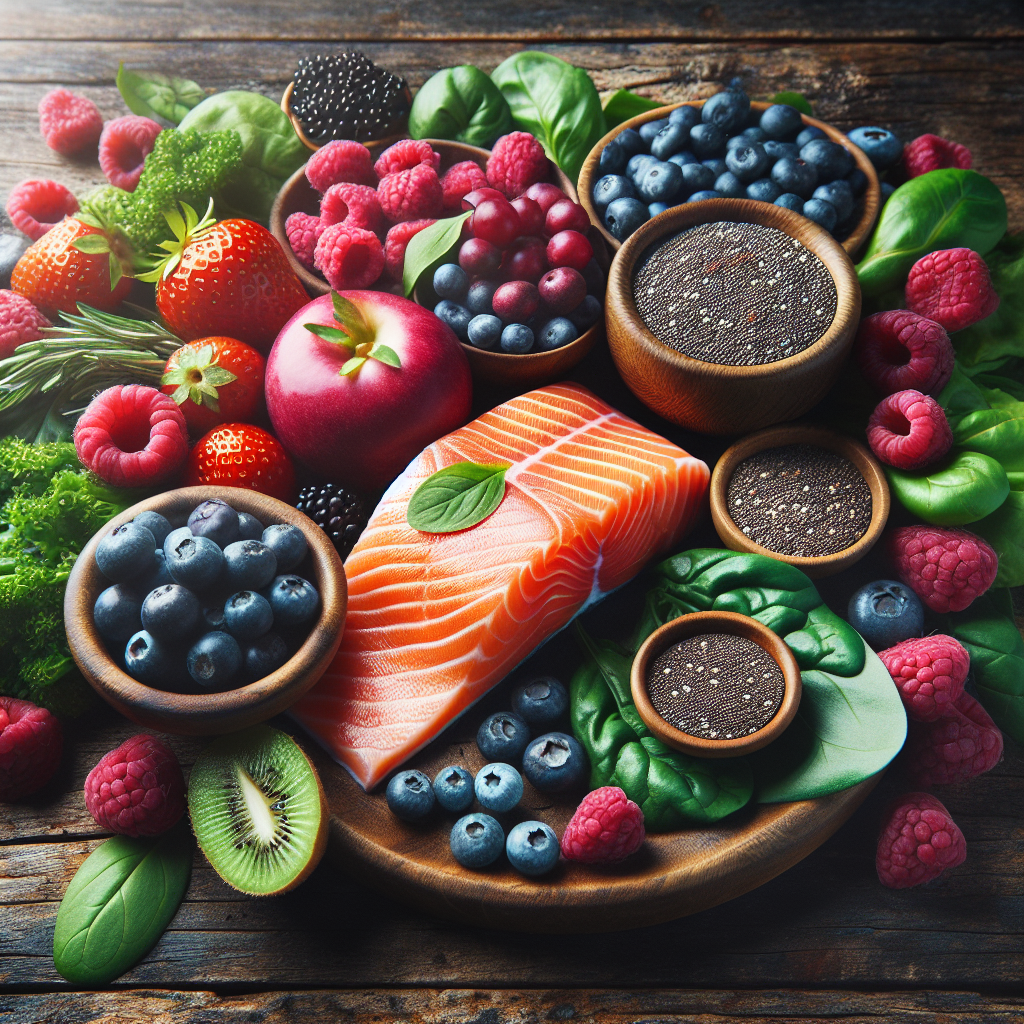The Power of Organic Foods in Managing ADHD Symptoms
Attention Deficit Hyperactivity Disorder (ADHD) affects millions of children and adults worldwide, often requiring a combination of behavioral therapy and medication. However, emerging research suggests that dietary choices—particularly organic, nutrient-dense foods—can play a crucial role in managing symptoms like inattention, hyperactivity, and impulsivity. By focusing on whole, unprocessed foods rich in omega-3s, antioxidants, and essential minerals, individuals with ADHD may experience improved focus and mood stability.
Omega-3-Rich Foods for Brain Health
Omega-3 fatty acids, particularly EPA and DHA, are vital for cognitive function and neurotransmitter balance. Studies indicate that individuals with ADHD often have lower levels of these essential fats, which are linked to improved focus and reduced hyperactivity.
Chia Seeds: A Plant-Based Powerhouse
Chia seeds are one of the richest plant-based sources of omega-3s, offering 4,915 mg per ounce. Their high fiber content also helps stabilize blood sugar levels, preventing energy crashes that exacerbate ADHD symptoms.
- Add chia seeds to smoothies or oatmeal for a breakfast boost
- Make chia pudding with almond milk as a snack
- Sprinkle on salads for extra crunch and nutrition
Organic Eggs: Nature’s Multivitamin
Pasture-raised organic eggs contain higher levels of omega-3s (up to 5 times more than conventional eggs) along with choline, a nutrient essential for brain development and neurotransmitter function.
Antioxidant-Rich Foods to Combat Oxidative Stress
Research shows that individuals with ADHD often experience higher levels of oxidative stress, which can impair cognitive function. Antioxidant-rich organic foods help neutralize free radicals and support brain health.
Berries: Nature’s Candy
Blueberries, blackberries, and raspberries are packed with flavonoids that enhance memory and learning capacity. Their low glycemic index helps maintain steady energy levels.
- Add frozen berries to Greek yogurt
- Blend into smoothies with spinach and flaxseeds
- Enjoy fresh as a snack with walnuts
Dark Leafy Greens: The Magnesium Connection
Spinach, kale, and Swiss chard are excellent sources of magnesium—a mineral often deficient in ADHD patients that plays a key role in calming the nervous system.
Protein-Packed Foods for Neurotransmitter Support
Protein provides amino acids that serve as building blocks for neurotransmitters like dopamine and norepinephrine, which are often imbalanced in ADHD brains.
Grass-Fed Beef: Iron and Zinc Combo
Organic, grass-fed beef provides heme iron (more absorbable than plant-based iron) and zinc—two minerals crucial for cognitive function and attention regulation.
Wild-Caught Salmon: EPA/DHA Powerhouse
A 3-ounce serving of wild salmon contains about 1,500 mg of omega-3s. The astaxanthin in salmon also provides potent antioxidant benefits.
Complex Carbohydrates for Steady Energy
Unlike refined carbs that cause blood sugar spikes, complex carbohydrates from whole foods provide sustained energy and support serotonin production.
Quinoa: The Complete Protein Grain
This gluten-free seed provides all nine essential amino acids plus magnesium, iron, and fiber—making it an ideal ADHD-friendly staple.
Sweet Potatoes: Beta-Carotene Boost
Rich in vitamin A (as beta-carotene) and fiber, sweet potatoes help regulate blood sugar while supporting cognitive function.
Foods to Avoid for Better ADHD Management
While adding nutrient-dense foods is important, eliminating certain items may be equally beneficial:
- Artificial food dyes (especially red and yellow)
- Processed foods with additives and preservatives
- Refined sugars and high-fructose corn syrup
- Conventional dairy (some individuals show sensitivity)
- Gluten (for those with sensitivities)
Implementing an ADHD-Friendly Diet
Transitioning to an organic, whole-foods diet doesn’t need to be overwhelming. Start with small changes:
- Replace one processed snack daily with fresh fruit and nuts
- Choose organic versions of the “Dirty Dozen” produce items
- Experiment with omega-3 rich recipes like salmon patties or chia breakfast bowls
- Keep a food journal to identify potential triggers
While dietary changes aren’t a substitute for professional treatment, incorporating these organic foods as part of a comprehensive ADHD management plan may lead to noticeable improvements in symptoms, focus, and overall wellbeing.
